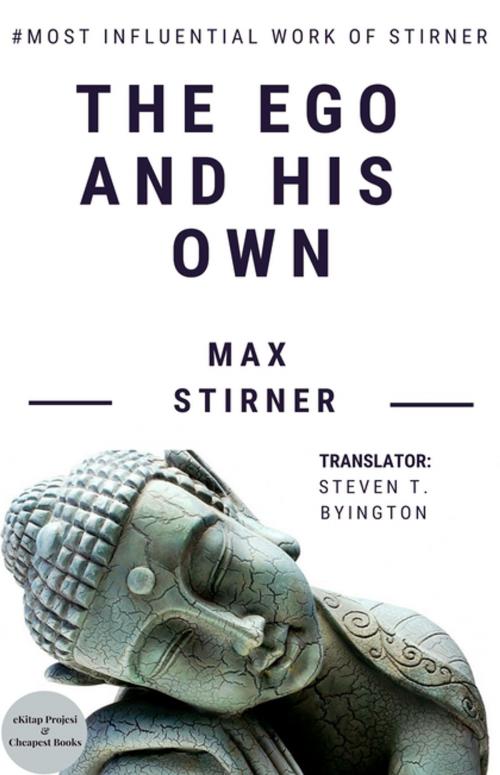The Ego and His Own
A Masterpiece on Western Philosophy
Nonfiction, Religion & Spirituality, Philosophy, Ancient, Political, Ethics & Moral Philosophy| Author: | Max Stirner | ISBN: | 9786057566805 |
| Publisher: | E-Kitap Projesi & Cheapest Books | Publication: | February 11, 2019 |
| Imprint: | E-Kitap Projesi & Cheapest Books | Language: | English |
| Author: | Max Stirner |
| ISBN: | 9786057566805 |
| Publisher: | E-Kitap Projesi & Cheapest Books |
| Publication: | February 11, 2019 |
| Imprint: | E-Kitap Projesi & Cheapest Books |
| Language: | English |
The Ego and Its Own is an 1844 work by German philosopher Max Stirner. It presents a radically nominalist and individualist critique of, on the one hand, Christianity, nationalism and traditional morality, and on the other, humanism, utilitarianism, liberalism and much of the then-burgeoning socialist movement, advocating instead an amoral (although importantly not inherently immoral or antisocial) egoism.
Stirner believed that there was no objective social reality independent of the individual; social classes, the state, the masses, and humanity are abstractions and therefore need not be considered seriously. He wrote of a finite, empirical ego, which he saw as the motive force of every human action. Writing chiefly for working-class readers, he taught that all persons are capable of the self-awareness that would make them “egoists,” or true individuals.
Max Stirner in his book The Ego and His Own (1845) recommended, instead of social reform, a ruthless individualism that should seek satisfaction by any means and at whatever risk. A small group of other individualists.
The Ego and Its Own is an 1844 work by German philosopher Max Stirner. It presents a radically nominalist and individualist critique of, on the one hand, Christianity, nationalism and traditional morality, and on the other, humanism, utilitarianism, liberalism and much of the then-burgeoning socialist movement, advocating instead an amoral (although importantly not inherently immoral or antisocial) egoism.
Stirner believed that there was no objective social reality independent of the individual; social classes, the state, the masses, and humanity are abstractions and therefore need not be considered seriously. He wrote of a finite, empirical ego, which he saw as the motive force of every human action. Writing chiefly for working-class readers, he taught that all persons are capable of the self-awareness that would make them “egoists,” or true individuals.
Max Stirner in his book The Ego and His Own (1845) recommended, instead of social reform, a ruthless individualism that should seek satisfaction by any means and at whatever risk. A small group of other individualists.















